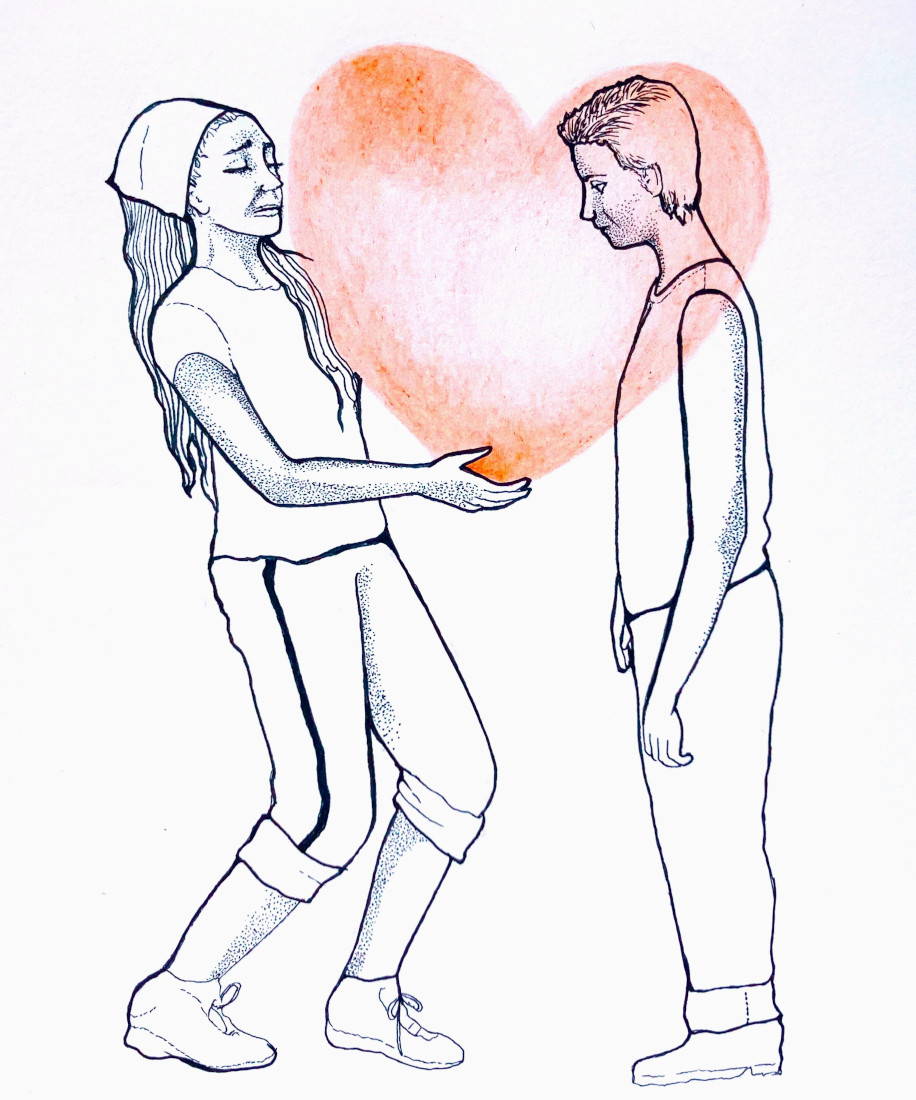Hyperempathy is exhausting and beautiful
Seeing the spectrum
Illustration by Gabrielle Funk
All I could feel was an overwhelming, suffocating sadness. I remember running to the bathroom, letting out a loud scream and hearing my parents and sisters expressing confusion and frustration at my outburst. Feelings of embarrassment and my own confusion began to permeate the sadness. “I don’t know why this is happening,” I thought. “What’s wrong with me?”
Discovering I’m Autistic has recontextualized that experience. There’s nothing wrong with me. My reaction was simply an expression of hyperempathy.
There’s a common misconception that Autistic people lack empathy. We’re often depicted as essentially selfish beings unable to understand that other people have feelings. The truth is that being Autistic does not make someone any less likely to be a kind and compassionate person, but because our expressions of empathy may not fit neurotypical expectations, we are assumed to be incapable of empathy at all.
This is especially frustrating because many Autistic people, including myself, experience the opposite: intense sensitivity to the emotions of others, which can include real people, fictional characters, animals and even inanimate objects.
For me, hyperempathy can be exhausting. It’s big and loud and drowns out everything else. I find myself wishing I could turn down the volume.
Instead, I’ve covered my ears and closed my eyes and sought sanctuary in so many bathrooms, away from it all. I watch the people around me carefully for any sign something is wrong and see signs where there are none. I want everyone to have a good time. I want everyone to feel comfortable. I want these things so badly I struggle to achieve them for myself.
At the same time, hyperempathy can be beautiful. I love how easily and deeply I can connect with fictional characters and stories. I love that it is one of the things that ignites my passion for justice and community care. It connects me to the world, to people who live across oceans and right next door, to people who lived long before me and who will live long after.
This is the central contradiction of so much of my Autistic experience: it is beautiful and exhausting, heartbreaking and life-giving all at once.
Hannah Penner is a criminal-justice student at the University of Winnipeg interested in prison abolition. She is a queer Autistic cat-lover who spends too much time on Twitter.
Published in Volume 76, Number 13 of The Uniter (January 13, 2022)





